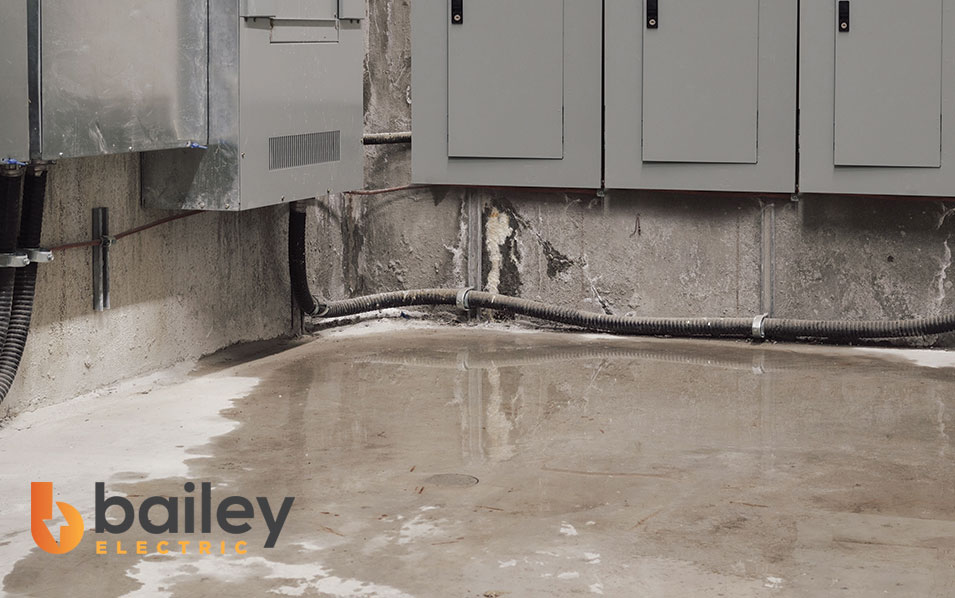
26 Jan Is Electrical Wiring Subject to Water Damage?
When it comes to our homes, we often think of protecting them from natural disasters like fires, floods, and earthquakes. But what about everyday occurrences like water damage? Is your electrical wiring at risk too? Let’s dive into this topic (pun intended)!
First things first, let’s talk about the basics. Electrical wiring is the system of conductors, devices, and fittings that carry electricity from your main power source to all the electrical outlets and appliances in your home. This includes everything from light switches and outlets to major appliances like refrigerators and washing machines.
Now, you may be wondering why we even need to worry about water damage when it comes to our electrical wiring. After all, isn’t water a conductor of electricity? Well, you’re right. Water is a great conductor of electricity and can cause major issues if it comes into contact with your wiring. But don’t worry, we’re here to give you some tips on how to prevent that from happening.
First and foremost, always make sure to use waterproof materials for any outdoor electrical installations. This includes things like outdoor outlets, lights, and extension cords. These materials are specially designed to withstand exposure to water and can help prevent any potential damage.
Next, be mindful of where you place your appliances and electrical devices in relation to sources of water. For example, don’t plug in your toaster right next to the kitchen sink or have a lamp sitting on top of a wet countertop. These may seem like common sense, but accidents can happen, and it’s better to be safe than sorry.
In addition to taking preventative measures, it’s also important to regularly check for any signs of water damage on your electrical wiring. This could include things like exposed wires, discoloration, or rusting on outlets and switches. If you do notice any of these warning signs, it’s important to call a licensed electrician right away to assess the situation and make any necessary repairs.
But what about those unexpected instances of water damage? Maybe your washing machine overflows or your roof springs a leak. In these cases, it’s crucial to act quickly and turn off the power to the affected area as soon as possible. This will help prevent any potential electrical fires and keep you and your home safe.
In conclusion, while water damage may not be the first thing that comes to mind when it comes to protecting your home’s electrical wiring, it is something to consider. By taking preventative measures, regularly checking for signs of damage, and knowing what to do in case of unexpected situations, you can help protect your home from potential water damage and keep your electrical wiring safe. And remember, when in doubt, always call a licensed electrician at Bailey Electric for assistance. Stay safe out there! So let’s make sure to take care of our homes from all sorts of natural disasters and everyday mishaps – including water damage.


Sorry, the comment form is closed at this time.